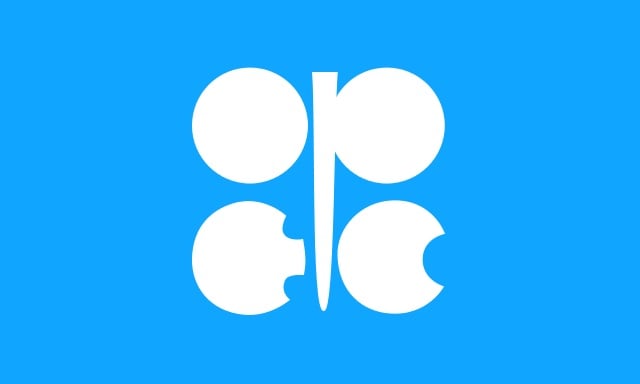
Source: Wikimedia Commons
The current account balance of the dozen OPEC countries fell from $417.7 billion in 2013 to $273.6 billion in 2014, a decline of 35%, as the member nations were forced to import more even as they exported less. The data come from the OPEC 2014 Annual Report released Wednesday.
Much of the report reinforces data presented in the cartel’s monthly oil market reports, and even the revelation about the cartel’s finances is not a big surprise. The Financial Times reported in early May that the Saudis had to draw some $36 billion from the country’s sovereign wealth fund to cover expenses for the months of March and April.
The cartel reported that its production fell by 157,000 barrels a day from 2013 to 30.075 million barrels a day. The data, as is usual with OPEC, is based on an “assessment of selected secondary sources.”
ALSO READ: Global Energy-Related Carbon Emissions Could Peak in 2020
Total global demand for oil rose by a million barrels a day year-over-year to 91.3 million barrels a day, while total global supply rose to 92.4 million barrels a day. That 1.3 million barrel daily surplus is the target of OPEC’s announced policy of letting the market find its own price without the cartel cutting its own production. At the end of 2014, the OPEC reference basket of 12 crudes had dropped 9% year-over-year from $105.87 to $96.29 in 2014.
In the fourth quarter last year, the OPEC reference basket averaged $73.69 a barrel. In the cartel’s June Oil Market Report, the reference basket averaged $62.16 a barrel, a new high for the year to date.
As low as OPEC revenues were in 2014, 2015 is shaping up to be an even more disappointing year.
Sponsored: Want to Retire Early? Here’s a Great First Step
Want retirement to come a few years earlier than you’d planned? Or are you ready to retire now, but want an extra set of eyes on your finances?
Now you can speak with up to 3 financial experts in your area for FREE. By simply clicking here you can begin to match with financial professionals who can help you build your plan to retire early. And the best part? The first conversation with them is free.
Click here to match with up to 3 financial pros who would be excited to help you make financial decisions.
Thank you for reading! Have some feedback for us?
Contact the 24/7 Wall St. editorial team.


